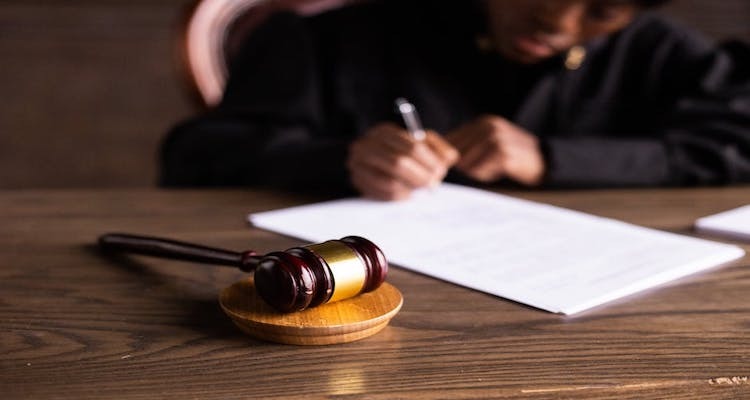Applying to discharge a special guardianship order in the UK is a complex process that directly affects a child’s stability, well-being, and long-term care. Families often ask: When can an SGO be changed or ended? The short answer is yes, but it is not straightforward. Courts prioritise the interests of the child above everything else, and only in certain situations can an application to discharge succeed. This guide breaks down what you need to know.
What is a Special Guardianship Order?
A special guardianship order (SGO) is a legal arrangement under the Children Act 1989. It gives a special guardian parental responsibility for a child until they turn 18, though the child’s parent does not lose their legal link entirely. SGOs are often chosen when adoption is not suitable, but the child needs stability with someone other than their parents. An SGO usually means:
- The special guardian can make day-to-day decisions for the child.
- The child lives with the guardian on a long-term basis.
- The parents may still have contact, depending on what the family courts decide.
Can You Discharge an SGO?
Yes, but not easily. Courts make special guardianship orders SGOs to give children security. They do not want a child moving back and forth between adults unless a significant change in circumstances has happened.
Who Can Apply to Discharge an SGO?
An application to discharge can be made by:
- The child themselves (if mature enough).
- The child’s parent.
- The special guardian.
- Any person with an existing child arrangement order.
But for parents or relatives, the threshold is high. They must prove a real change in their ability to care for the child. This could involve recovery from domestic abuse, overcoming addiction, or showing improved financial and emotional stability.
What Counts as a Significant Change in Circumstances?
Courts look for evidence, not promises. Examples of a significant change in circumstances include:
- Completion of therapy or rehabilitation programmes.
- Stable housing and employment.
- Proof of a safe environment, free from domestic abuse or neglect.
- Positive reports from a child lawyer or social worker.
Without these, it is unlikely a court will discharge an SGO.
How Do You Apply to Discharge an SGO?
To apply for discharge, you need to complete specific forms and submit them to the family courts. The process includes:
- Filing Form C1 (application form).
- Paying the court fee unless you qualify for a fee exemption.
- Provide supporting evidence of your significant change in circumstances.
- Notifying the local authority and the special guardian.
- Attending hearings where the judge will decide if the child’s welfare is better served by discharging the SGO.
At this stage, having a child custody lawyer can make a big difference. They will prepare evidence, speak on your behalf, and highlight why discharging the order aligns with the interests of the child.
What Do Courts Consider Before Discharging an SGO?
Judges must consider the child’s safety, attachments, and long-term future. They will weigh:
- The strength of the bond with the special guardian.
- The risk of disrupting a stable home life.
- The role of family members.
- Whether contact with the child’s parent is in the child’s best interest.
- Recommendations from the local authority.
The overriding principle is the interests of the child, not the wishes of the adults.
Is Legal Aid Available?
Yes, in certain cases. If there are concerns about domestic abuse or child protection, you may qualify for legal aid. According to the UK Legal Aid Agency, around 80,000 people accessed family law legal aid in 2023, often linked to child protection matters. If you do not qualify, many solicitors offer fixed-fee packages, no-obligation quotes, or initial free consultations.
What Role Does the Local Authority Play?
The local authority usually investigates and reports to the court. Their input carries significant weight, as they can confirm whether the environment for the child has improved or whether staying with the special guardian remains the safest option. They may also recommend support services such as parenting classes, therapy, or supervised contact, instead of a full discharge.
Can Parents Reapply for Custody After Discharge?
Yes, but parents need to apply for a special guardianship order SGO to be lifted before any new arrangement is considered. If successful, the court might:
- Return the child to their parent under a child arrangement order.
- Consider alternative carers within the family.
- Place the child under continued supervision from the local authority.
How Does an SGO Compare to Other Orders?
It is important to understand the difference:
- A special guardianship order in the UK gives the guardian strong, but not absolute, authority.
- Adoption removes all parental rights permanently.
- A child arrangement order may be more flexible and easier to vary.
SGOs are often described as a middle ground between adoption and fostering.
What If There Are Allegations of Domestic Abuse?
Allegations of domestic abuse can heavily influence outcomes. The court will order safeguarding checks and may appoint a child lawyer to represent the child’s voice. If risk is proven, it is highly unlikely the court will discharge an SGO.
Final Thoughts
Making an application to discharge a special guardianship order in the UK is not a quick or simple route. The courts need strong evidence that circumstances have changed and that ending the order will serve the interests of the child. If you are considering this step:
- Speak with a child custody lawyer early on.
- Gather clear evidence of your progress.
- Be prepared for assessments by the local authority and scrutiny from the family courts.
The system is designed to protect children, and while it may feel daunting, with the right legal support and proof of a real change, it is possible to succeed.

